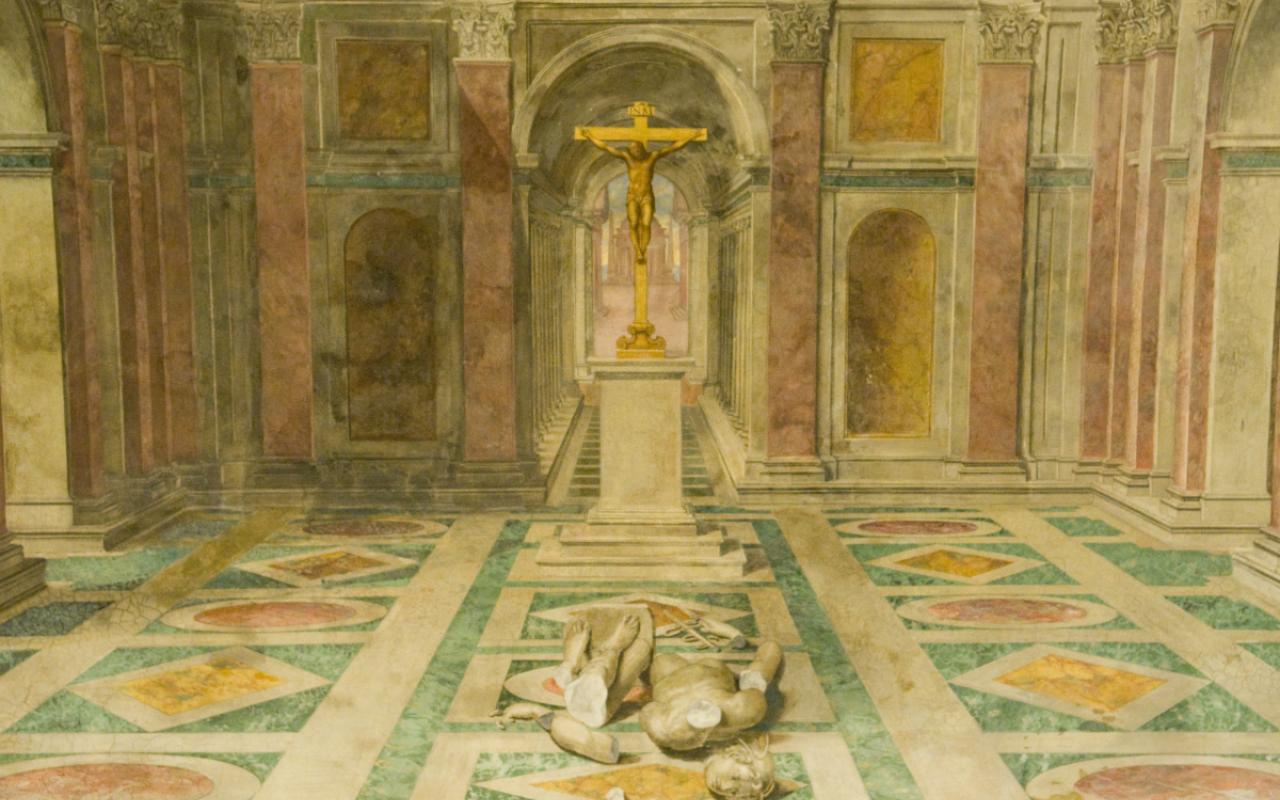Why did Christianity triumph in the fourth century? It began as a despised sect in a rich, well-organized, sophisticated society, yet it took over that society. In general, we might postulate the need for a religion of peace in the savage and insecure world of Rome. Jesus’ teachings gave Christianity certain advantages over the mystery cults. For example, the cult of Isis lacked a missionary priesthood and was chiefly for women. The complexity of its rites and the lack of a great leader or teacher to make clear the ideas associated with the cult gave it little sustained popular appeal.
So the evangel really was “good news”—with its promise of personal immortality and its admonition to behave with kindness and love toward one’s fellow human beings. The expanding church provided a consoling and dramatic ritual, and the opportunity to become part of the dangerous and challenging task of spreading the gospel. The would-be convert could find in it ideas and rites closely related to those of Egyptians, Greeks, and Jews. The new beliefs were compatible with various already held beliefs, making possible that merging of bodies of ideas that is called syncretism.
From its cradle in Jerusalem, Christianity did not penetrate far into the lands of Zoroastrian, Hindu, and other Eastern faiths, nor into Africa south of the Sahara. Instead, it spread westward along the trade routes of the Mediterranean and north into Europe, essentially within the structure of the Roman Empire, for it needed the political and cultural framework of the state.
Christianity succeeded not only because it set itself against the earthly compromises of pagan cults and the sterility of later pagan philosophy, but also because it contained so much of Judaism and of paganism. Even more important perhaps is the extent to which Christianity allowed the old rites and habits, the unintellectual, practical side of religion to survive. Christmas celebrates the birth of Jesus, but it also marks the turning northward of the European winter sun, the promise of its returning warmth; and Easter is an echo of thousands of years of celebration of the coming of spring.
So Christianity offered a new and believable spiritual promise, yet preserved reassuringly familiar elements; it extolled mutual love; it had a capacity for adaptation; it was well led and taught. Moreover, Christianity eventually triumphed within the Roman world because of the organization of the church, something that Jesus had not foreseen, much less planned. The Roman principle of the union of state and church, with the first predominant, was applied in reversed order of importance in the West, the better to give humanity the sense of security it needed in a period of vast and rapid change.

